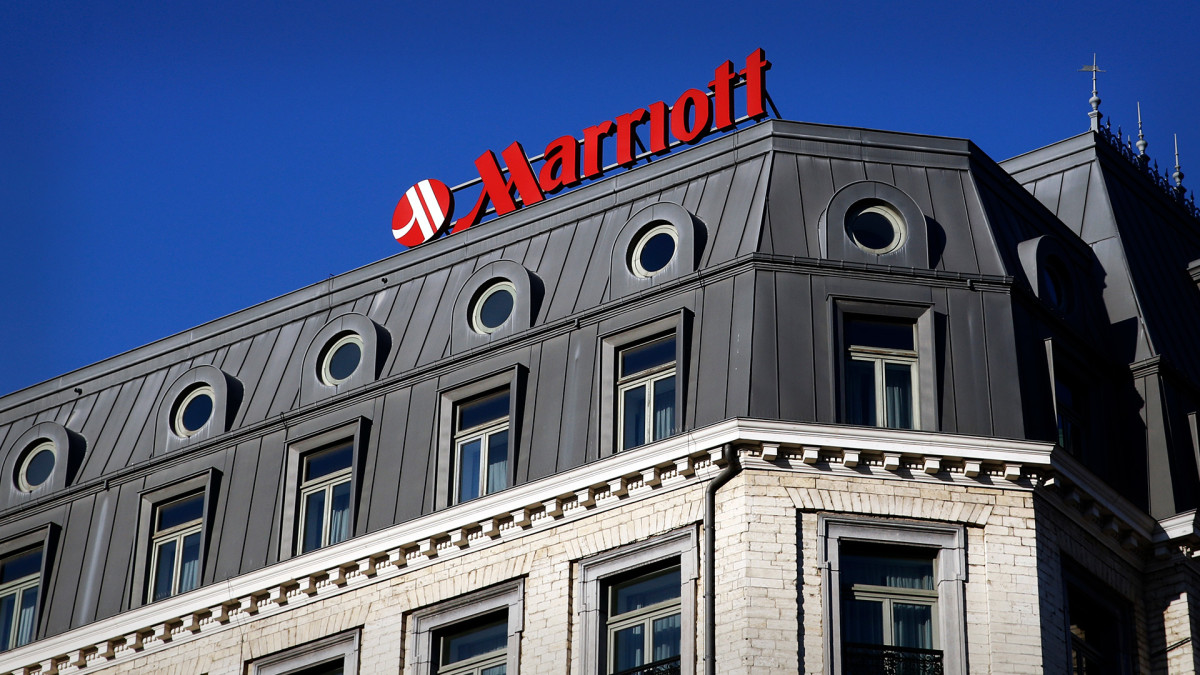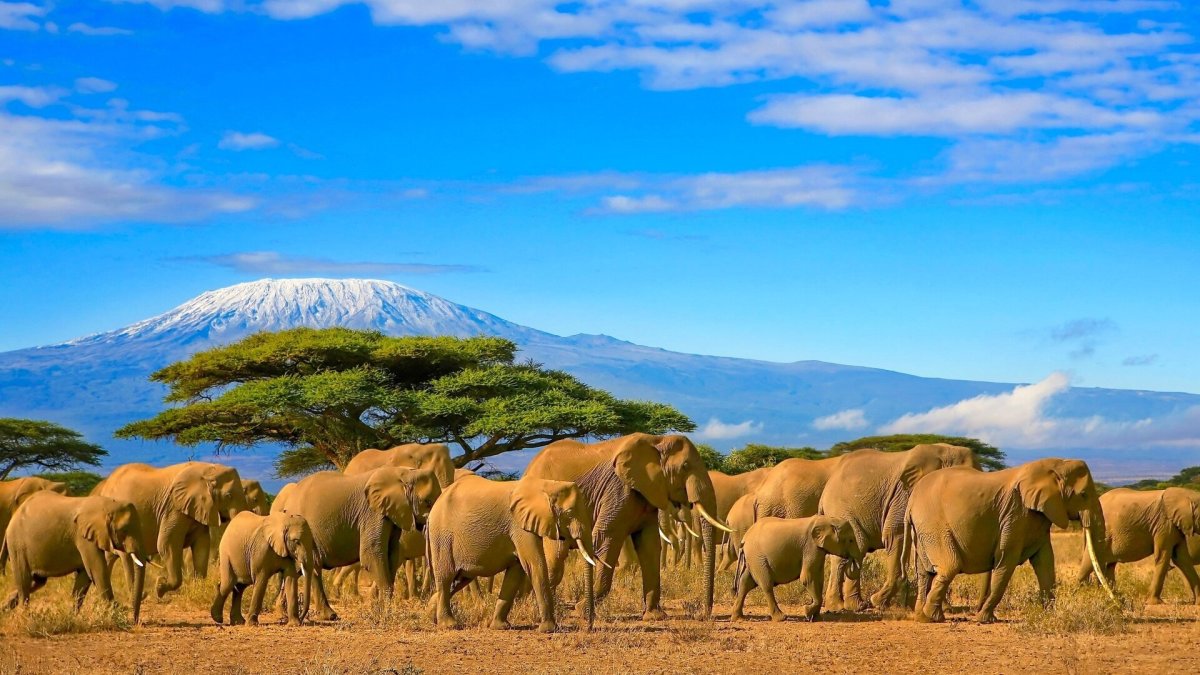Marriott sued over environment, complaint seeks demolition
I will never forget that viral photo from 2019 taken by mountaineer Nirmal Purja, the long, unmoving queue of climbers waiting near the final approach to the summit of Everest. Think about that for a second: a traffic jam at the top of the world. It had deadly consequences. Climbing Everest is ...

I will never forget that viral photo from 2019 taken by mountaineer Nirmal Purja, the long, unmoving queue of climbers waiting near the final approach to the summit of Everest. Think about that for a second: a traffic jam at the top of the world.
It had deadly consequences.
Climbing Everest is dangerous on its own, but that year overcrowding became a partial culprit in at least 11 deaths, according to Snopes. This is what happens when we fail to respect nature, when ambition outweighs reason.
In the decades since mass travel became more easily available, once-remote and inaccessible destinations have seen more visitors than ever.
As an avid outdoors enthusiast for more than a decade, I’ve seen trails littered with garbage. As a caving instructor, I’ve found pits filled with trash. My family, including my children, often carries garbage bags on our hikes, picking up what we can. It’s a small contribution, but important.
Larger change requires a shift in collective consciousness, a huge task, but one where even small steps matter.
Tourism itself isn’t the problem, however, poorly regulated tourism can be.
"If tourism is badly planned and not managed responsibly, it can on the contrary lead to biodiversity loss, ecosystem degradation and negative impacts to local communities. It is therefore essential for tourism that takes place in protected areas to be managed correctly and uphold the principles of sustainable development," according to In IUCN 2014 report “Sustainable tourism and natural World Heritage."
The question of balance between development and nature preservation now lies at the center of a legal battle involving one of the world’s largest hotel companies, Marriott International (MAR).
Maasai Sue Marriott Over Ritz-Carlton Safari Camp
Maasai ethnic group has filed a suit against Marriott seeking an order to demolish a new Ritz-Carlton luxury safari camp, according to The Wall Street Journal.
According to Meitamei Olol Dapash, a Maasai elder with an American Ph.D., the camp site blocks a key route of the famous Serengeti migrations. Serengeti is a national park in north-central Tanzania that hosts one of the greatest wildlife spectacles of this type, when wildebeest and zebra cross a long road in search of green grass.
Serengeti is part of a larger Serengeti ecosystem that extends into southwestern Kenya, where it is known as the Maasai Mara National Reserve.
“The 800 kilometer trek of the immense wildebeest herd is the largest mammal migration on earth,” according to Serengeti National Park.
Dapash, who is a director of the Maasai Environmental Resource Coalition, has sued Marriott, which owns the Ritz-Cartlon brand, and Kenyan authorities in a local court, which was backed by some other Maasai leaders.
Dapash earned his Ph.D. in sustainability at Arizona’s Prescott College says it already happened that some wildebeest have turned back to avoid the camp. The Ritz-Cartlon camp launched in August during the peak of the annual migration, and one confused elephant was seen trying to find a route that he previously used for more than 10 years.
“Travellers are lured by the idea of traveling to this pristine, remote, exotic destination, but the truth is, as a traveler, you may well be contributing to the destruction of the very place you want to visit,” he said.
Researchers highlight that the number of lodges and camps in the Mara grew to 175 in 2024, from 95 in 2012, according to data cited by The Wall Street Journal. Shutterstock
What’s next for Marriott's Ritz-Carlton camp?
It is understandable that the largest mass movement of mammals with two million wildebeest, zebra and other species migrating back and forth between Serengeti plains in Tanzania and the Maasai Mara in Kenya is attracting many tourists. However, tourism development in the area risks damaging the very attraction that draws visitors in the first place.
The Wall Street Journal reached out to Marriott International for a comment on a lawsuit, but the hotel chain declined. Meanwhile the company that owns and operates the Ritz-Carlton camp in question, Lazizi Mara, denies claims that it is located on a sensitive wildlife corridor, arguing that it has all the approvals and passed audits by the Kenyan environmental authority.
In 2023, Kenya presented a moratorium on new development in the Maasai Mara reserve, but the Ritz-Carlton obtained an exemption, according to court documents viewed by The Wall Street Journal.
The government justified the decision by arguing it would help attract investors, and the camp forecasted it could generate $25 million in tax revenue for the Kenyan government over the next six years, and 200 jobs.
The Ritz-Carlton camp charges more than $3,500 per guest per night during the height of season.
Dapash is asking the court to order land restorations to its original condition, including newly planted trees.
“Unless we regulate what we are doing, the Mara is going to die,” Dapash said.
The lawsuit is scheduled to be heard in court in December.
Related: Marriott rolls out major 25-percent-off deal for loyal members
Not a first lawsuit of this kind against Marriott
This isn’t the first lawsuit against Marriott over the last few years, and one of those legal controversies are similar in nature to Maasai lawsuits, as it considers land‑use, indigenous and cultural‑heritage disputes tied to hotel developments.
For example, in 2018, an indigenous group in Peru filed the first ever Quechua language complaint to the Peruvian NCP against Marriott. The suit alleges that Marriott and its subsidiary has “destroyed an ancient Inca temple, exhumed human remains from an attached cemetery, and conducted unauthorized excavations in an archaeological site in order to build a hotel of the Marriott family of hotels.”
The group requested that Marriott drop the hotel project and return all Incan artifacts removed during the construction, and reconstruct and restore the Inca site where the hotel is being built.
In October 2019,= the Peruvian NCP issued an initial assessment rejecting the complaint on three primary grounds: lack of substantiation; existence of parallel proceedings, and failure to establish a link between the company and the impacts, according to OECD Watch.
“Though the NCP rejected the complaint, in 2019, the courts ordered the hotel to be demolished and restoration actions to be taken, in addition to fining the real estate company a total of $4.2 million soles for damage to cultural heritage, equivalent to nearly $1.1 million,” reads the report from University of Colorado, citing several sources, including Peruvian Times.
Related: Marriott rolls out major 25-percent-off deal for loyal members
What's Your Reaction?





















































